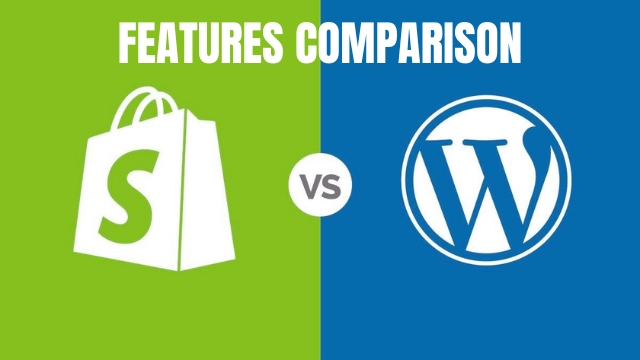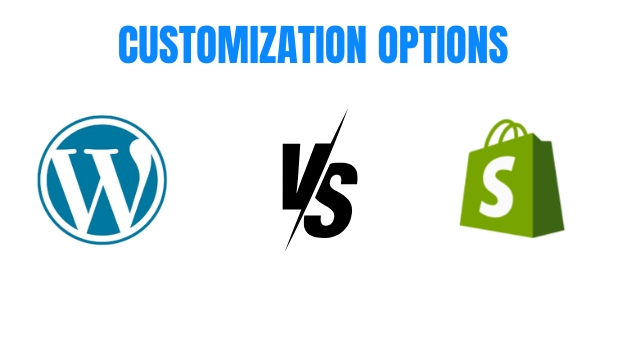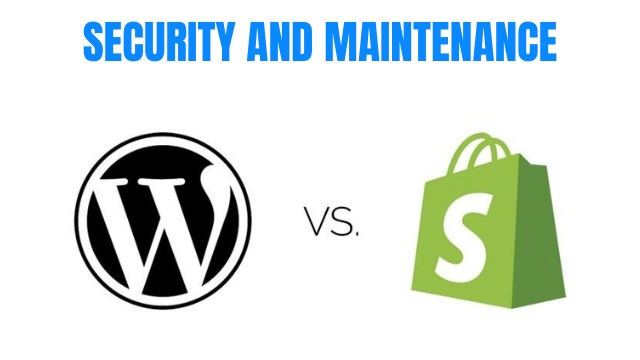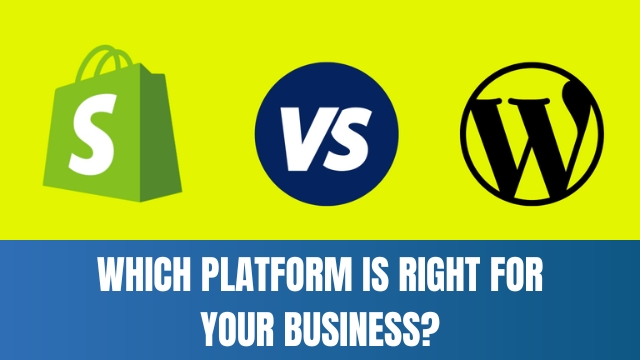In the ever-evolving digital landscape, having a robust and scalable website is essential for businesses of all sizes. Shopify and WordPress are two of the most popular platforms available, each offering unique strengths. Whether you’re launching an online store, a blog, or a corporate website, understanding the differences between these platforms will empower you to make an informed decision.
Overview of Shopify and WordPress
Shopify
Shopify is a dedicated eCommerce platform designed to help businesses create and manage online stores with ease. It offers a user-friendly interface, built-in tools for sales, and comprehensive support, making it ideal for businesses focused primarily on selling products online.
WordPress
WordPress is an open-source content management system (CMS) renowned for its flexibility and scalability. It powers over 40% of all websites on the internet, ranging from simple blogs to complex eCommerce sites. With thousands of plugins and themes, WordPress is highly customizable, catering to a wide array of business needs.
Features Comparison

Ease of Use
Shopify:
- User-Friendly Interface: Designed for non-technical users, Shopify offers a straightforward setup process with drag-and-drop functionality.
- Comprehensive Guides: Extensive documentation and tutorials assist users in building and managing their stores.
- Managed Hosting: Shopify handles all hosting and security, reducing the technical burden on users.
WordPress:
- Flexibility: While more customizable, WordPress has a steeper learning curve, especially for users without technical expertise.
- Admin Dashboard: Offers a powerful dashboard with extensive settings and options, which can be overwhelming for beginners.
- Self-Hosted Options: Users need to arrange their own hosting, which provides more control but requires additional management.
Winner: Shopify is generally easier for beginners, while WordPress offers more flexibility for those willing to invest time in learning the platform.
Customization Options

Shopify:
- Themes: Offers over 140 professionally designed themes, both free and paid, optimized for eCommerce.
- App Store: A wide range of apps to extend functionality, though customization is limited compared to WordPress.
- Template Editing: Limited ability to modify themes without coding knowledge.
WordPress:
- Themes and Builders: Access to over 11,000 free themes and numerous premium options. Page builders like Elementor and Divi enhance customization.
- Plugins: With over 30,000 plugins, WordPress can extend functionality to meet virtually any requirement.
- Full Control: Users can edit code directly for complete customization, making it ideal for unique website needs.
Winner: WordPress excels in customization flexibility, allowing for extensive modifications to meet specific business requirements.
SEO and Marketing Tools
Shopify:
- Basic SEO Features: Includes essential SEO tools like meta tags, URL customization, and sitemaps.
- Built-In Marketing: Integrated with social media platforms and offers email marketing tools.
- App Integrations: Additional SEO and marketing functionalities available through the Shopify App Store.
WordPress:
- Advanced SEO Plugins: Tools like Yoast SEO and Rank Math provide comprehensive SEO management.
- Content Marketing: Superior blogging capabilities with rich content formatting options.
- Marketing Integrations: Seamlessly integrates with a wide range of marketing tools and platforms.
Winner: WordPress offers more advanced and flexible SEO and marketing tools, making it a better choice for businesses focused on content-driven marketing strategies.
eCommerce Capabilities
Shopify:
- Dedicated eCommerce Features: Built-in tools for inventory management, payment processing, and shipping.
- Sales Channels: Easily integrates with various sales channels like Amazon, eBay, and social media platforms.
- Security: PCI compliant and includes SSL certificates to ensure secure transactions.
WordPress:
- WooCommerce Plugin: Transforms WordPress into a powerful eCommerce platform with extensive features.
- Customization: Greater flexibility in product listings, payment gateways, and shipping options through plugins.
- Scalability: Suitable for small to large-scale eCommerce operations with the right setup.
Winner: Both platforms are robust for eCommerce, but Shopify offers a more streamlined and out-of-the-box solution, while WordPress with WooCommerce provides greater customization for complex eCommerce needs.
Security and Maintenance

Shopify:
- Managed Security: Shopify handles all security updates, backups, and compliance, ensuring your store remains secure.
- 24/7 Support: Access to customer support for any security or technical issues.
- Automatic Updates: Platform updates are managed by Shopify, reducing the maintenance burden on users.
WordPress:
- User-Managed Security: Users must implement their own security measures through plugins and best practices.
- Regular Updates: WordPress core, themes, and plugins require regular updates to maintain security.
- Hosting Responsibility: Security also depends on the chosen hosting provider, adding another layer of responsibility.
Winner: Shopify offers superior security and ease of maintenance by handling all technical aspects, whereas WordPress provides more control but requires diligent management from the user.
Pricing Structures
Shopify Pricing
Shopify operates on a subscription-based model with several pricing tiers:
- Basic Shopify: $29/month – Includes essential features for new businesses.
- Shopify: $79/month – Offers additional features like professional reports.
- Advanced Shopify: $299/month – Provides advanced reporting and third-party calculated shipping rates.
- Shopify Plus: Custom pricing – Tailored for large enterprises with high-volume sales.
Pros:
- All-in-one pricing includes hosting, security, and support.
- Transparent pricing with scalable plans to grow with your business.
Cons:
- No free plan available.
- Additional costs for premium themes and apps.
- Domain registration is extra ($14.95/year).
WordPress Pricing
WordPress itself is free, but costs arise from hosting, themes, and plugins:
- Hosting: Ranges from $3 to $30/month depending on the provider and plan.
- Domain Name: Approximately $10-$15/year.
- Themes: Free and premium themes available (typically $30-$100 one-time or annually).
- Plugins: Many free plugins, with premium options costing $20-$100/year each.
- Additional Costs: Professional development, security services, and maintenance tools may add to expenses.
Pros:
- Highly flexible pricing based on your specific needs and budget.
- Free core platform with extensive free resources.
Cons:
- Costs can accumulate with premium themes, plugins, and hosting.
- Requires more hands-on management to control expenses.
Winner: WordPress can be more cost-effective initially, especially for small businesses, but costs can rise with added functionalities. Shopify offers a predictable pricing structure inclusive of essential services.
Which Platform is Right for Your Business?

Choose Shopify if:
- Your primary focus is eCommerce and selling products online.
- You prefer an all-in-one solution with managed hosting and security.
- You seek a user-friendly platform with minimal technical maintenance.
- You need quick setup with professional themes optimized for online sales.
Choose WordPress if:
- You require extensive customization and control over your website’s design and functionality.
- Your business relies heavily on content marketing, blogging, or SEO.
- You are comfortable managing hosting, security, and site maintenance or have the resources to do so.
- You need a versatile platform that can handle various types of websites beyond eCommerce.
Ultimately, the best choice depends on your business goals, technical expertise, and budget. Shopify is ideal for businesses prioritizing ease of use and streamlined eCommerce operations, while WordPress offers unparalleled flexibility and scalability for those willing to invest in customization and management.
Frequently Asked Questions About Shopify vs WordPress
Q1. Can I migrate my existing website from WordPress to Shopify or vice versa?
Answer: Yes, migration is possible but requires careful planning. For moving from WordPress to Shopify, you can use migration apps or services that transfer content, products, and customer data. Conversely, migrating from Shopify to WordPress (with WooCommerce) involves exporting your store data and importing it into WordPress. It’s advisable to back up your data and consider professional assistance to ensure a smooth transition.
Q2. Which platform offers better support and customer service?
Answer: Shopify provides 24/7 customer support through phone, live chat, and email, ensuring immediate assistance for any issues. WordPress relies on community support, forums, and documentation, with additional support available through hosting providers or premium services. If dedicated support is a priority, Shopify has the edge.
Q3. Is it possible to integrate third-party tools and services with both platforms?
Answer: Yes, both Shopify and WordPress support integration with a wide range of third-party tools and services. Shopify’s App Store and WordPress’s extensive plugin ecosystem allow you to connect various marketing, analytics, and sales tools to enhance your website’s functionality.
Q4. Which platform is better for SEO?
Answer: WordPress is generally considered superior for SEO due to its advanced SEO plugins like Yoast SEO and Rank Math, which offer comprehensive optimization features. While Shopify provides essential SEO tools, WordPress offers more flexibility and control for in-depth SEO strategies.
Q5. Can I use both platforms together?
Answer: While Shopify and WordPress serve similar purposes, you can integrate them to leverage the strengths of both. For example, you can use WordPress for content management and blogging while embedding a Shopify store for eCommerce. This hybrid approach allows you to enjoy the flexibility of WordPress with the robust eCommerce capabilities of Shopify.
Conclusion
Selecting between Shopify and WordPress hinges on your business priorities, technical expertise, and long-term goals. Shopify stands out for its ease of use, comprehensive eCommerce features, and managed services, making it an excellent choice for businesses focused on online sales without the hassle of technical maintenance. On the other hand, WordPress offers unmatched customization, advanced SEO capabilities, and versatility, catering to businesses that require a highly tailored and scalable website solution.
By carefully evaluating your specific needs and considering the strengths of each platform, you can make an informed decision that will support your business’s growth and success in the digital realm.
Author Profile

- Nitin Jain - C.E.O - India PR Distribution
- Nitin Jain is the founder and C.E.O of India PR Distribution - India's top Press Release Distribution and PR Agency. Nitin has more than 20 years of experience in PR, Corporate Communications, Digital Marketing, Branding Strategy and Lead generation.
Latest entries
 Press releaseJanuary 31, 2026A Year of PR in 12 Stories: The Editorial Calendar Every Marketing Leader Can Copy
Press releaseJanuary 31, 2026A Year of PR in 12 Stories: The Editorial Calendar Every Marketing Leader Can Copy EntrepreneursJanuary 5, 2026Nitin Jain Entrepreneur Behind India PR Distribution Success
EntrepreneursJanuary 5, 2026Nitin Jain Entrepreneur Behind India PR Distribution Success Press releaseNovember 20, 2025Meet Nitin Jain: CEO of India PR Distribution
Press releaseNovember 20, 2025Meet Nitin Jain: CEO of India PR Distribution Search OptimizationSeptember 16, 2025What Is Digital PR and Why It Matters for SEO Success
Search OptimizationSeptember 16, 2025What Is Digital PR and Why It Matters for SEO Success

